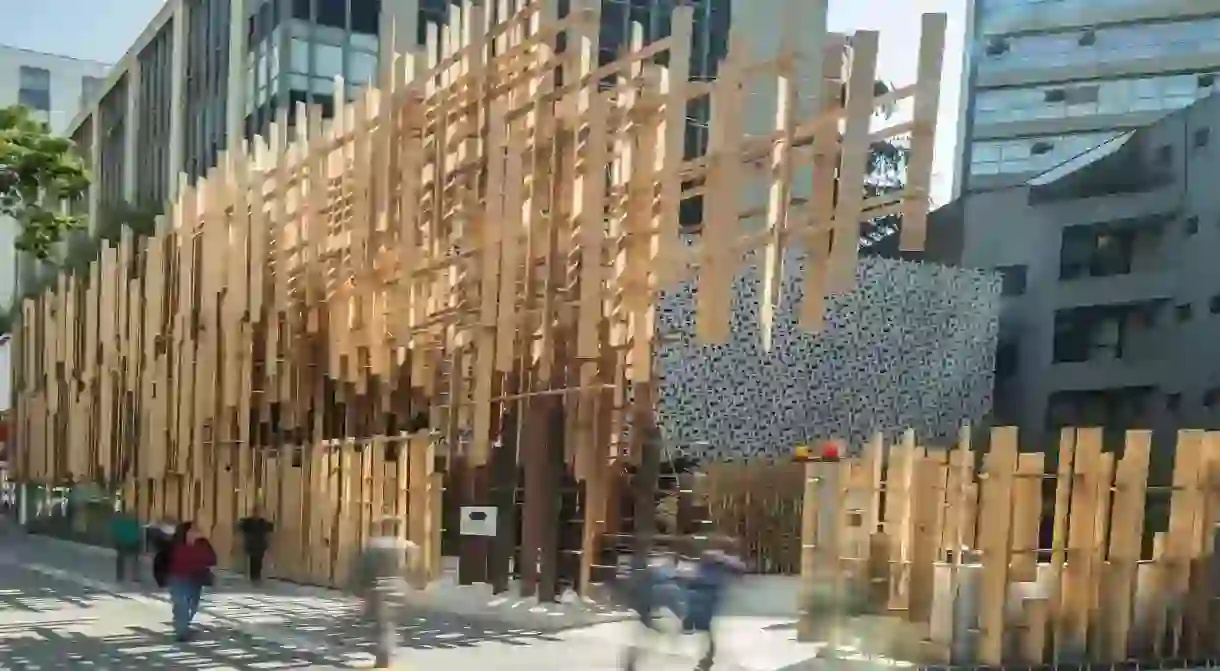Japan House: The Brazilian Museum Everyone's Talking About

With its eye-catching design and beautiful exhibitions, the stunning Japan House has quickly become one of São Paulo’s hottest new attractions, bringing in around half a million visitors in its first few months. Located on Paulista Avenue, São Paulo’s main thoroughfare, the cultural center was opened earlier this year as an initiative of the Japanese government to promote Japanese art and culture around the world.
The Japan House project involves opening unique cultural centers, all with free entry, in three cities around the world – São Paulo, London and Los Angeles – with Japan House São Paulo being the flagship. The choice of the city is down to the fact that São Paulo is home to the world’s largest Japanese population outside of Japan. After Brazil abolished slavery in 1888, Japanese laborers crossed the Pacific en masse to work on the coffee plantations in the country’s south-east and quickly established themselves as a thriving community in the city of São Paulo. Japan House serves as a testament to the connection between the two countries that still exists today.
The first thing you notice about Japan House is its exquisite and eye-catching exterior. Designed by Japanese architect Kengo Kuma (the man responsible for the New National Stadium project in Tokyo, which will host the 2020 Olympic Games) the building has two distinct façades which complement each other perfectly, encapsulating the meeting point between Japanese and Brazilian architecture. The first, looking out onto Paulista Avenue, is an intricate and delicate-looking wall made of hinoki wood, brought over specially from Japan. Pieces of wood of varying sizes from hundred-year old hinoki trees are expertly joined together like a jigsaw, giving the building a distinctly traditional Japanese look.

The other main wall, facing south-east towards Praça Osvaldo Cruz, is a piece of pure Brazilian modernism. In an attempt to marry the styles of traditional Japan and modernist Brazil, Kuma opted to use a type of concrete latticework popular in the 1930s known as cobogós, which allow for the passage of light. The two styles combine beautifully, making Japan House arguably the most striking building on Paulista Avenue.
Inside, Japan House has two main exhibition spaces, as well as a café, library, gift shop, restaurant and lecture theaters. The main exhibition hall, accessible directly from the entrance, currently hosts the jaw-dropping Foam, an installation piece by renowned contemporary Japanese artist Kohei Nawa. Consisting of a large, cloud-like sculpture made from soap bubbles, Foam is constantly moving and reshaping itself, making it a truly mesmerizing experience. Along with the soft atmospheric music and low, moody lighting, it’s not uncommon to see people spending long periods of time entranced, staring at the sculpture.

Foam (Espuma, in Portuguese) will remain at Japan House until November 12, and should not be missed.
Up the stairs, the second exhibition currently in progress is Satoyama, a collaboration between Japanese chef Yoshihiro Narisawa and leading Brazilian food photographer Sergio Coimbra. The exhibition, consisting of a series of intriguing photographs, is the result of the pair’s travels around Japan in search of the roots of the country’s cuisine, which Narisawa gives the name “satoyama”, or food for the body and soul.
Thankfully, after drooling over the exquisite food photography, Japan House has its own in-house options for eating and drinking. On the ground floor – alongside the library with its fascinating collection of books on Japanese and Brazilian cuisine, architecture, design and technology – is the charming Imi Cafe, a small café which sticks to the Japanese-Brazilian brief of Japan House, serving delicious teas and Japanese desserts, as well as Brazilian snacks and (very) good coffee.

If you’re looking for a meal, however, look no further than Junji, the restaurant on Japan House’s second floor. The head chef, Jun Sakamoto, is famous for leading one of São Paulo’s best (and most expensive) restaurants, which is named after himself, and he has now decided to open Junji, a simpler and more accessible version of his restaurant.
Elsewhere, Japan House offers visitors the chance to do a spot of shopping, with stores Furoshiki, selling beautiful wrapping cloth, and Japan Madoh, offering a variety of utensils and kitchenware. Muji, the Japanese company famous worldwide for their rational and simplistic apparel and household goods, will open their own pop-up store at Japan House in the coming months.
Japan House, Avenida Paulista, 52, Bela Vista, São Paulo. +55 (11) 3090-8900
Open Tue-Sat 10AM-10PM, Sun 10AM-6PM
Free entrance














